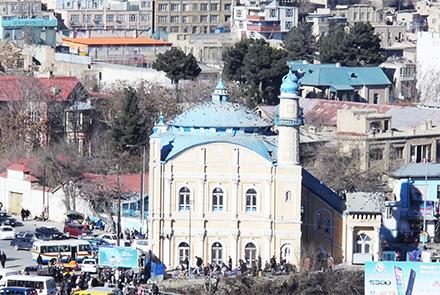In its annual 2017 Report on International Religious Freedom, the US Department of State said that in recent years, a series of deadly attacks were conducted on the Shia community in Afghanistan.
The report says that the majority of attacks were carried out by Daesh.
Meanwhile, Afghan government officials have said that they have outlined a number of security measures to protect the lives of Shia people in Afghanistan.
“The Afghan government is working to protect all its citizens. The main focus is on those groups which are facing serious threats,” said Jawed Faisal, deputy spokesman to CEO Abdullah Abdullah.
“We are doing our best to secure them, naturally we have undertaken some extra measures in areas which we believe are more at risk,” said interior ministry spokesman Najib Danish.
“During the last year, Shia Muslims, especially ethnic Hazaras, fell victim to multiple violent and deadly attacks, as well as abductions that often ended in death. The attacks were overwhelmingly claimed by or attributed to US-designated terrorist groups, including the Taliban and ISIS (Daesh). Reportedly, more than 500 members of the Shia community were injured or killed between July and November 2016. There continue to be allegations that the government failed to provide adequate security in majority-Shia areas,” an excerpt from the report says.
Based on the report, over recent years, Afghanistan minorities such as Hindus, Sikhs, and Christians have also faced threats.
According to the report, there are no reliable estimates of the size of Afghanistan’s Christian and Baha’i populations; however, based on reports from refugees in Europe, these populations likely have diminished significantly since the Taliban’s resurgence in 2015. The one known Christian church in the country continues to operate on the grounds of the Italian Embassy. Baha’is continue to live covertly due to the 2007 fatwa.
“For example, in June 2016, in Sar-e-Pul Province, the Taliban abducted 17 Hazara Shia Muslims; it later released them, reportedly only after their community leaders paid a ransom. Allegedly, they were kidnapped in retaliation for the Afghan government’s detention of a local Taliban leader the day before. In July, two ISIS suicide bombers struck a peaceful protest by Hazara Shia Muslims in Kabul, killing at least 80 people and injuring more than 400,” says the report.
“Between October 11 and 12, two separate ISIS-claimed attacks targeted the Shia community during Ashura celebrations. During the October 11 attack on the Karte Shrine in Kabul, at least 19 people were killed and dozens injured. On October 12, a bomb detonated at a mosque in Khoja Gholak, Balkh Province, resulting in 14 deaths and 30 injuries; most of the victims were children. Also in October, ISIS abducted and killed 30 civilians from the predominately Shia area of Ghor Province. In November, an ISIS suicide bomber in Kabul killed at least 32 worshippers and injured 50 more as the Shia community observed the religious ceremony of Arba’een,” noted the report.
“Religious freedom is in the American bloodstream. It’s what brought the pilgrims here from England. Our founders understood it as our first freedom. That is why they articulated it so clearly in the First Amendment. As James Madison wrote years before he was president or secretary of state, quote, “conscience is the most sacred of all property,” end of quote. Religious freedom was vital to America’s beginning. Defending it is critical to our future. Religious freedom is not only ours. It is a right belonging to every individual on the globe. President (Donald) Trump stands with those who yearn for religious liberty. Our Vice President stands with them, and so do I,” US Secretary of State Mike Pompeo said.
Over 150 Afghan Shias were killed and two hundred others were wounded as a result of attacks by Daesh in 2017.


